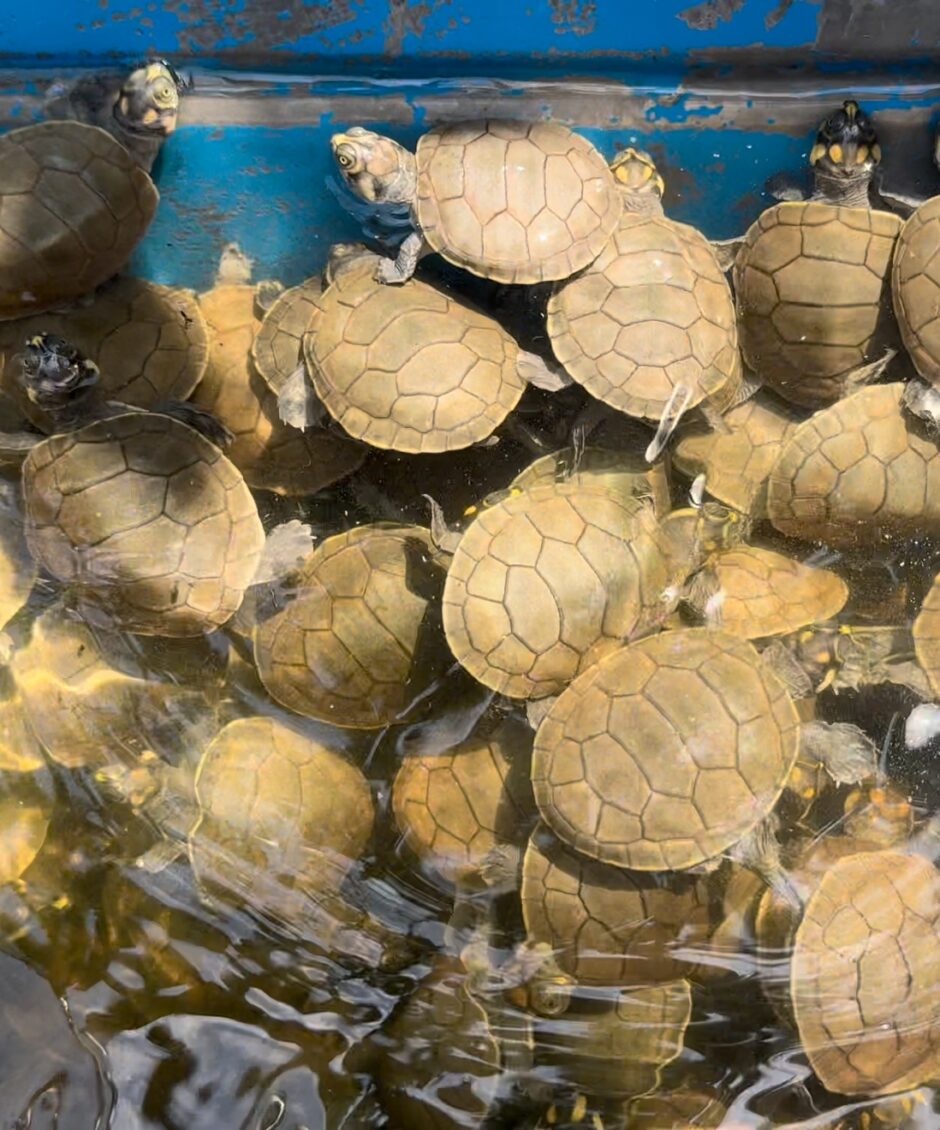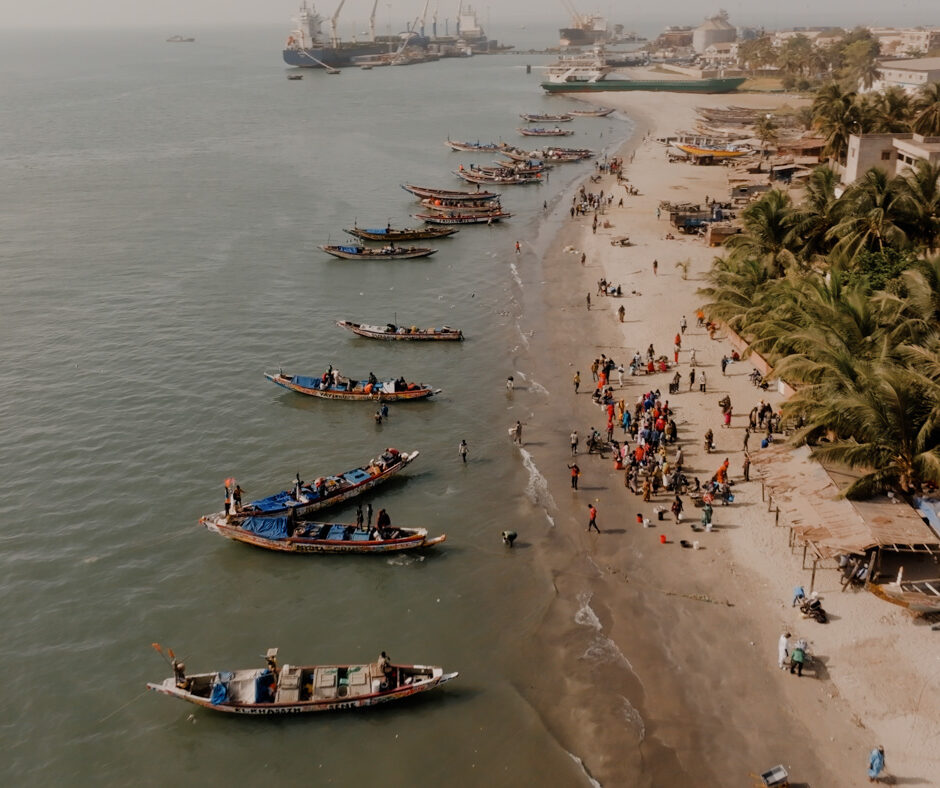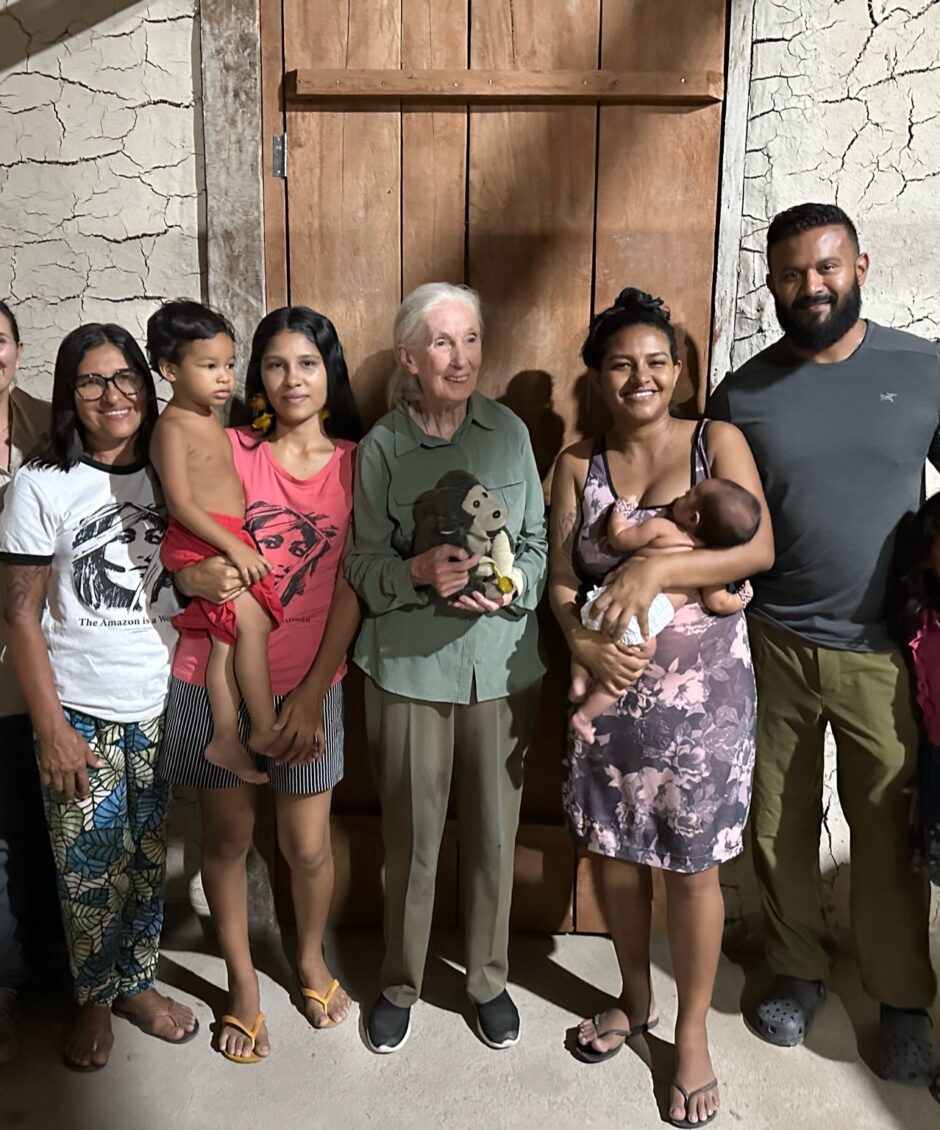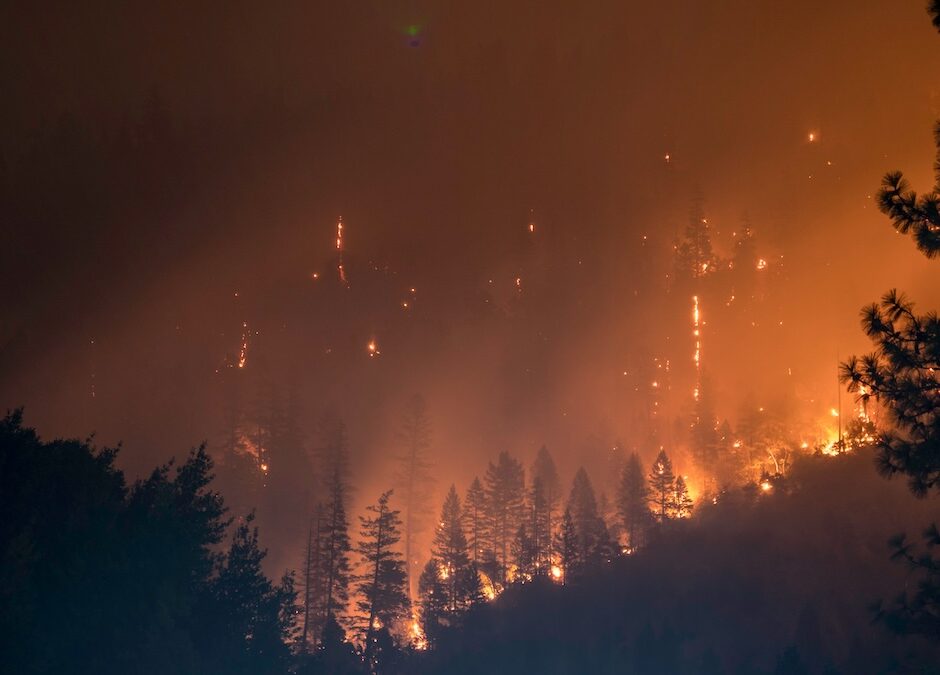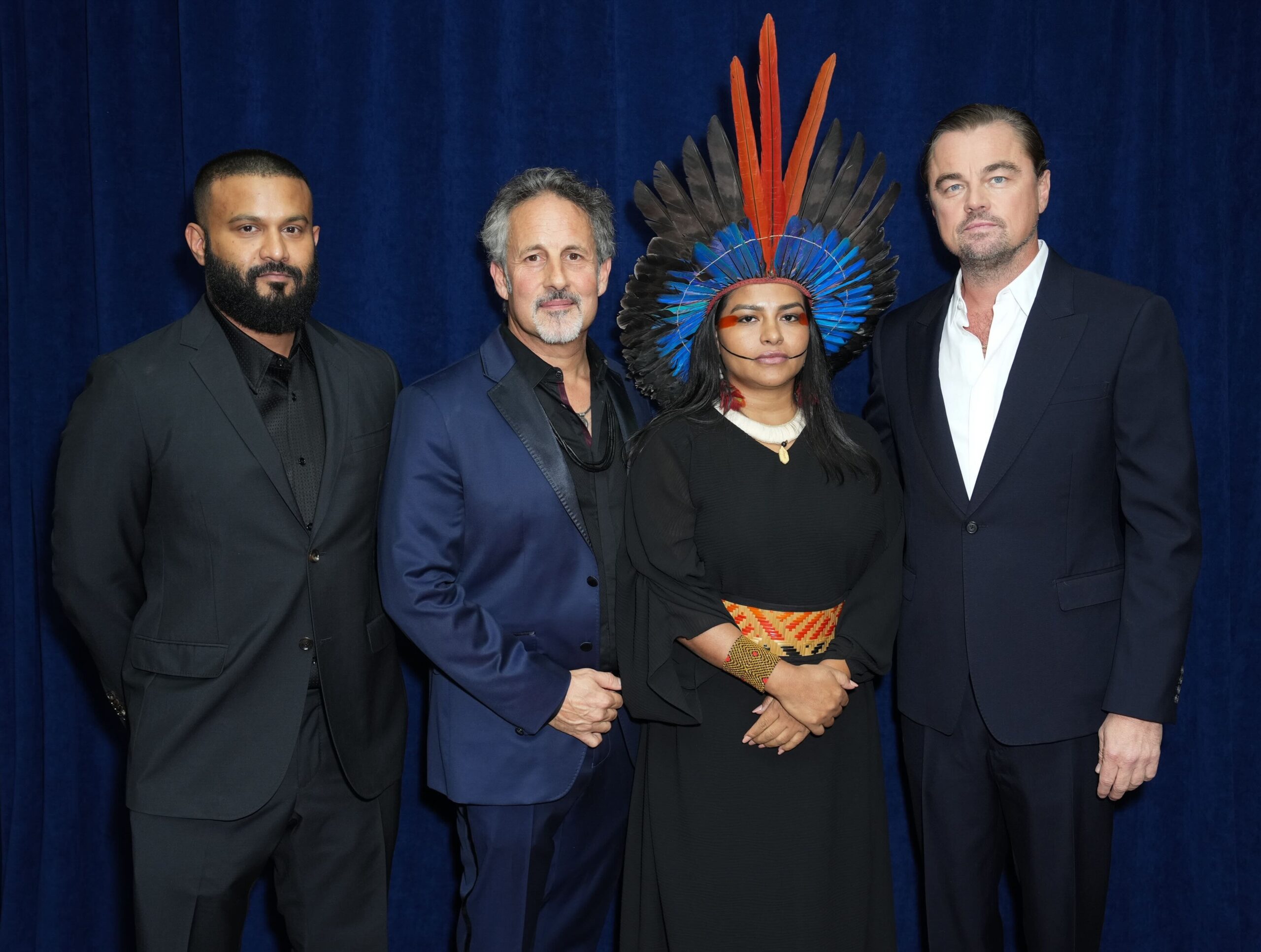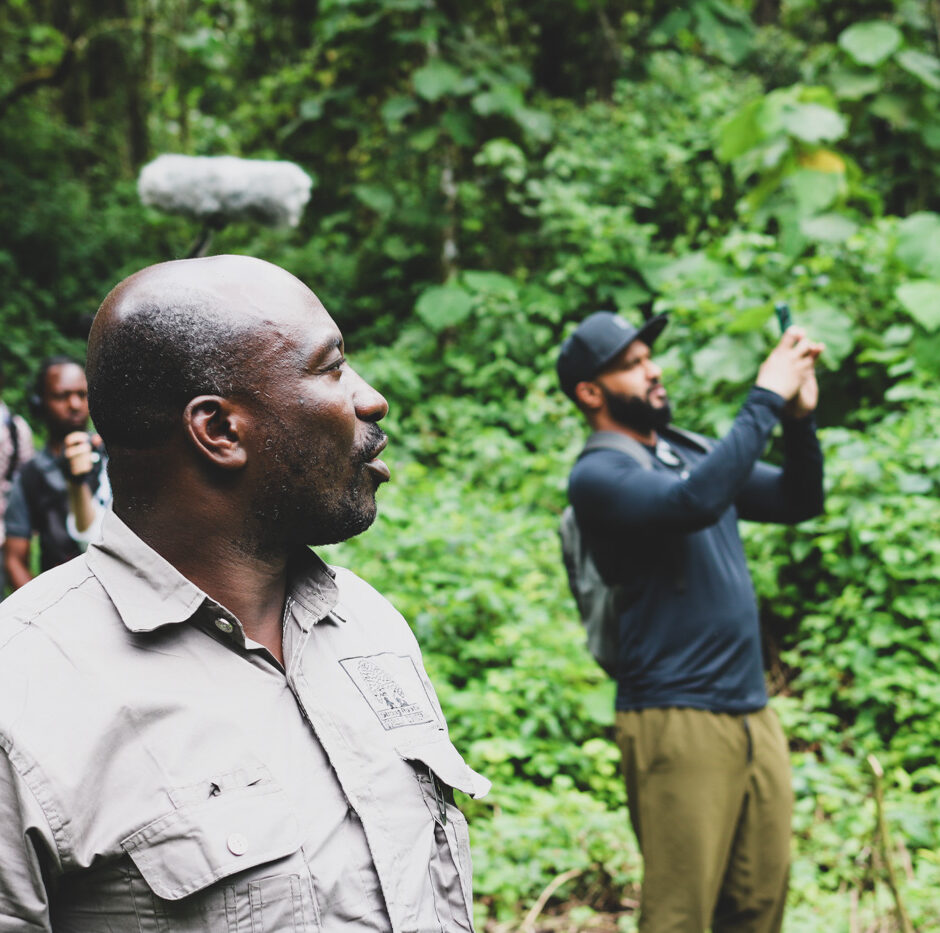This Young Leader is Boosting the Climate Resilience of His Haitian Community
Article
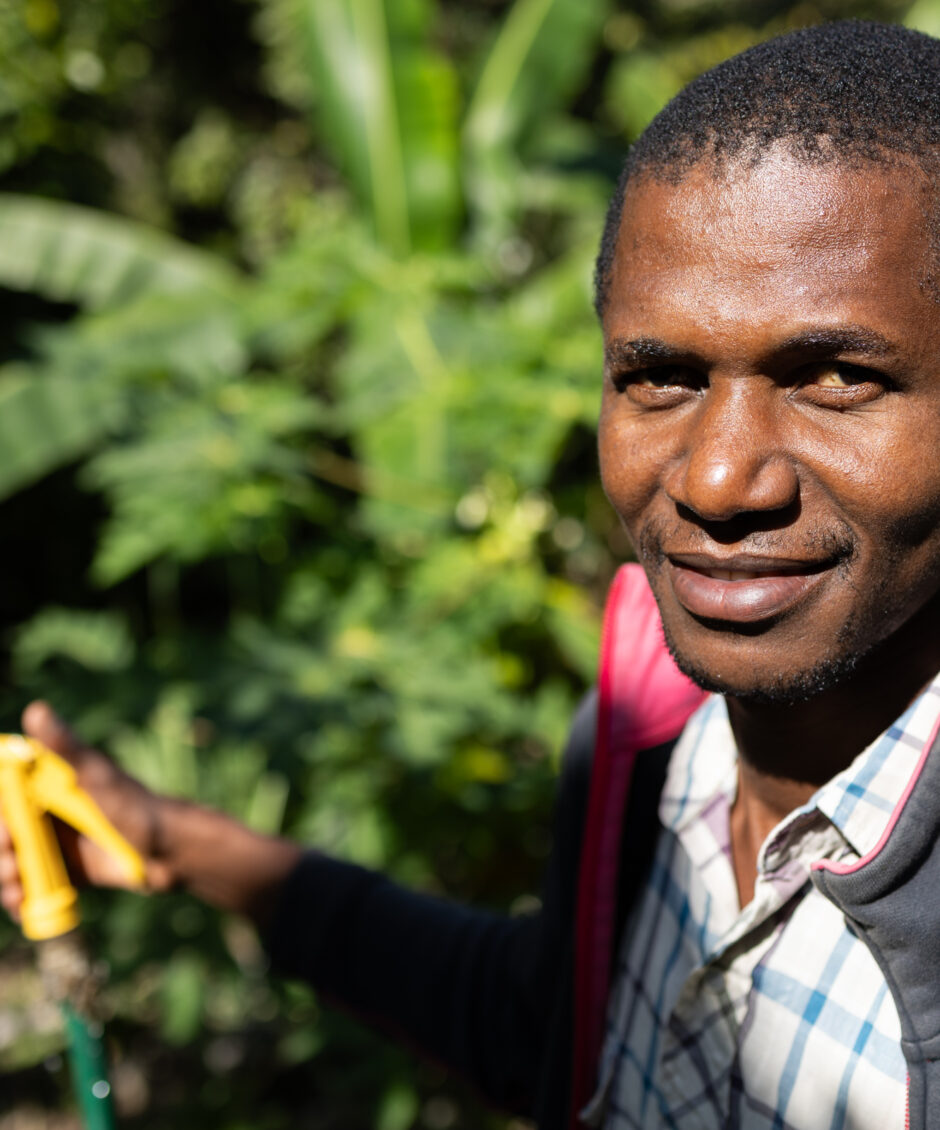
Through managing an experimental farm, agronomist Odinave Dominique supports the Baille Tourible community to regenerate lost forests and strengthen their livelihoods.
Author
Jacky Habib
Topics
It’s been nearly 25 years since coffee grew in Baille Tourible in Haiti’s Central Plateau. The effects of climate change in the country have led to soaring temperatures and infrequent rainfall, which has led to crop loss and an inability to grow coffee, amongst other plants, vegetables, and fruits.
Over the years, residents like agronomist Odinave Dominique have seen these changes first-hand.
“When I was a little boy, all the mountains were covered with trees, but now, it’s different,” he said.
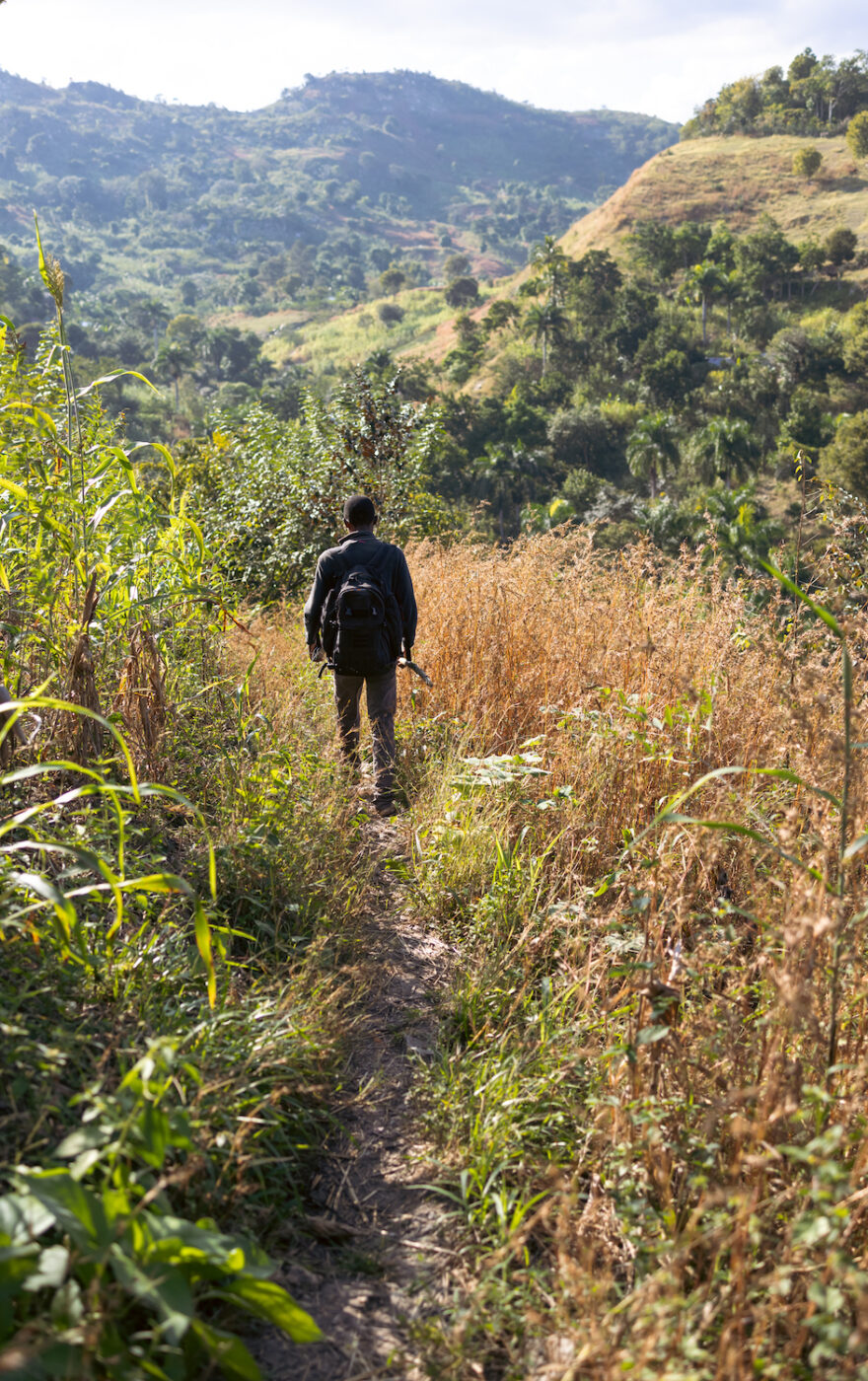
These climactic changes have made it increasingly difficult for community members — 98 percent of whom are subsistence farmers — to survive and earn livelihoods from their land. As residents increasingly experience poverty, some have turned to cutting down trees to sell wood or make charcoal, and this deforestation is exacerbating climate change.
“Coffee disappeared because of deforestation. It used to be the major source of income [for] the people,” said Dominique. “We shifted to black beans, but now we’re looking to balance both.”
Dominique and his team are working to bring the caffeinated plant back through a sustainable, community-led initiative. Supported by Age of Union, he manages an experimental farm that operates a nursery that plants coffee and other fruit seedlings to create coffee and fruit orchids.
These orchids help community members earn an income while contributing to the reforestation of the country’s Central Plateau, where environmental damage heightens the vulnerability of residents who already live in the poorest region in the western hemisphere.
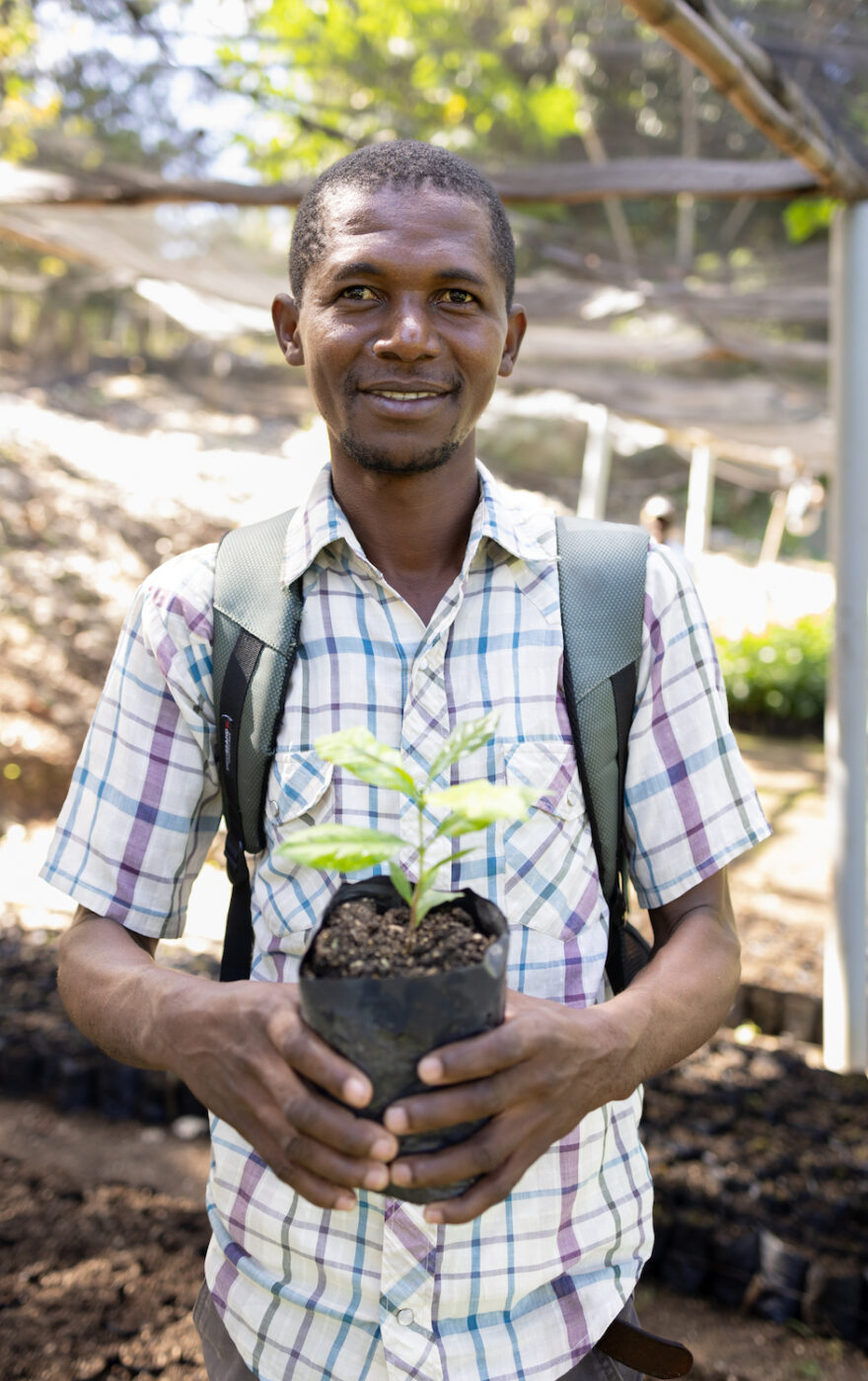
“Reforestation is very important because it helps to protect the trees and keeps good soil [which] is a key factor to produce more food,” said Dominique, explaining the link between reforestation and food security.
Dominique, one of six children in his family, was the only one who attended university. Inspired by childhood memories of helping his dad sow and harvest on their farm, Dominique chose to study agronomy.
“[These memories] is what generates my love for the earth and the work I am doing,” he said.
During his undergraduate studies, Dominique developed a keen interest in seed production, which led to a successful business of selling seeds. While still a student, Dominique returned to his hometown of Baille Tourible to share his knowledge of seed production and how it could help residents earn a livelihood and curb the effects of climate change, which he could see was deeply affecting farmers.
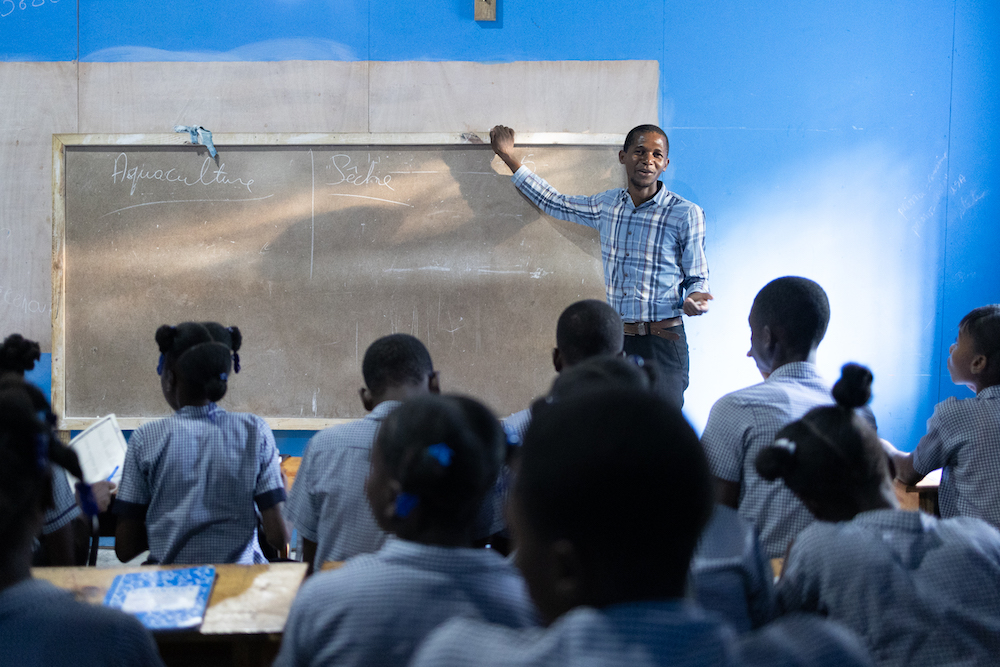
“There is less rain. When people expect rain in March, they get it in April or even in May — all of this is caused by deforestation,” Dominque said.
In 2019, he was hired by KANPE, a foundation that supports Haiti’s most underserved communities on their path to autonomy through six pillars, including agroforestry. The foundation recruited Dominique to manage an experimental farm that works toward improving tree coverage in the community to benefit the environment, increase agricultural output, and promote economic empowerment.
Through a partnership between KANPE and Age of Union, community members get hands-on experience with conservation as they produce, distribute and plant over 25,000 fruit and forest seedlings each year and support a farmer field school. The initiative involves and educates diverse community members in Baille Tourible, including children who learn how to produce and plant seedlings and how to restore depleted land.
Since all community residents have their land, they plant the forest and food seedings on their property, which eventually will “become big trees, giving people trees and fruit, and helping their land to produce more food in general,” Dominique said.
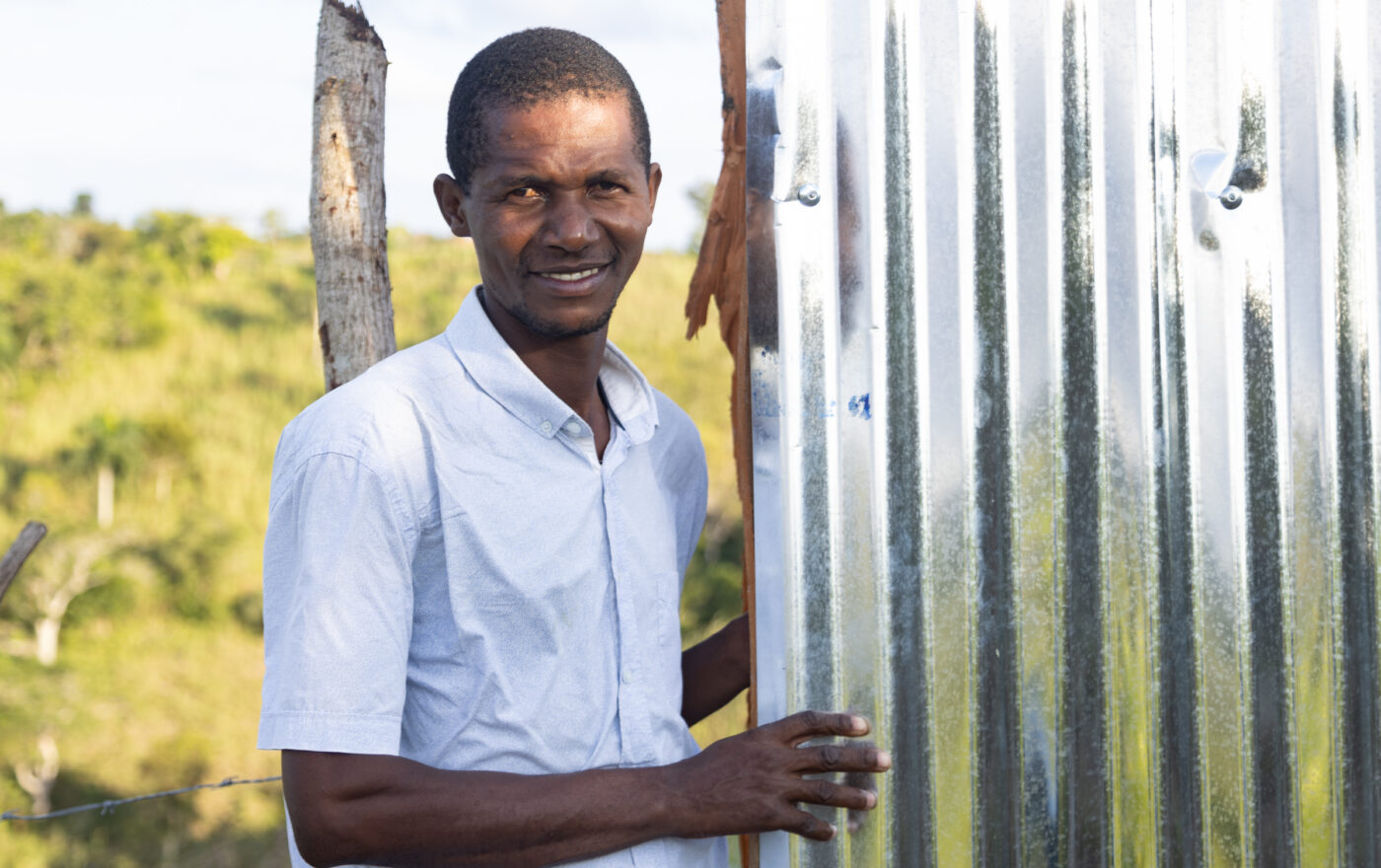
People can keep seeds from their harvest to plant the following year, borrow seeds from neighbours, or turn to a local seed bank to plant seeds annually, enabling them to participate in a virtuous cycle that contributes to regeneration and helps secure their livelihood year after year.
Strengthening livelihoods — which results from successfully growing and harvesting coffee and other plants — can be life-changing, as Dominque knows.
“My dad’s farming would not only feed us at the house but help us buy clothes, send us to school, and even buy us a house in the city,” he said.
It’s this hope he has for fellow residents of Baille Tourible who, for years, have had to bear the brunt of climate change.
Credits
Josué Azor
Topics
Article written by
Jacky Habib
Related
articles
Africa, Project
Inside the Fight to Protect Gambian Artisanal Fishermen and Biodiversity From Industrialized Fishing
News, Project, South America
Age of Union Announces USD $287,000 Commitment to The Juma Institute for New Knowledge Centre and Amazon Rainforest Protection
Project
More articles
America, Asia, News
What More Intense Wildfire Seasons Mean For People and the Planet
Film
Environmentalist and Executive Producer Dax Dasilva Celebrates World Premiere of YANUNI at the 2025 Tribeca Festival
News
Tech Entrepreneur and Environmentalist Dax Dasilva Announces New Book Echoes from Eden As A Call to Action to Protect the Planet’s Vanishing Ecosystems
Africa, Film
